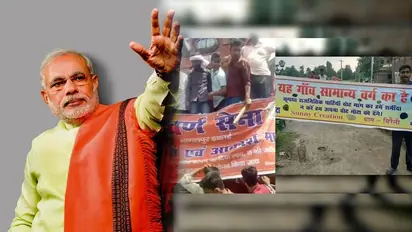
New Delhi: The Narendra Modi dispensation might have delivered one of the biggest clinchers for the 2019 general elections as the Cabinet on Monday cleared 10% reservation for economically weaker sections among the upper castes across all religions.
MyNation, on September 12, was the first to report that the government was seriously mulling the introduction of income-based reservation for upper castes so far kept out of reservations. This was billed as a political masterstroke by PM Modi.
A home ministry source also confirmed that the Constitution would soon be amended for making way for this 10% reservation.
MyNation had reported, quoting top government sources, that the Modi government was contemplating offering reservation to the poor among upper-caste Hindus.
Deliberations were on at the topmost levels of the government and the party over introducing income-based reservation for castes so far kept out of reservations.
The current reservation structure for Scheduled Castes, Scheduled Tribes and Other Backward Classes will not be disturbed. The idea is to carve out a separate category of reservation for upper castes without tinkering with the existing quotas. The government, sources said, may initiate steps as early as the coming Winter Session of Parliament.
For this, the cap for reservation above 50% will have to be raised by an amendment. Tamil Nadu, for example, has 69% reservation.
Interestingly, many upper caste voters have severely criticised the Modi government after it overturned the Supreme Court ruling on the Scheduled Castes Scheduled Tribes (Prevention of Atrocities) Act. While the apex court had added some safeguards against immediate arrest under the Act, the Centre passed an amendment in the Monsoon Session to reverse it.
Some organisations observed a Bharat Bandh, protested against the government’s stand. Many in social media called for a ‘NOTA Movement’ in the 2019 polls.
However, by introducing an economic criteria-based quota, the Modi government may checkmate all that resentment and the possibility of the opposition fuelling violent caste agitations before the 2019 elections.
The BJP seems to have been testing waters for a while. Its Dalit MPs and allies have been publicly mooting the idea for upper-caste reservation.
Union minister of state for social justice and empowerment Ramdas Athawale had last Friday hinted at what could be coming in the Winter Session. He rooted for 25% reservation to the poor among the upper castes by jacking up the quota limit to 75%. He was joined by another Union minister Ram Vilas Paswan, who demanded a 15% reservation for upper castes.
Sources said the figure could be between 15% and 25%.
At the State level, such an attempt had been made in Gujarat. The State BJP government in 2016 had mooted a 10% reservation for general category for families earning under Rs 6 lakh a year, but the High Court quashed it. The Rajasthan government too tried a similar reservation for the poor among upper castes. But even this was quashed by the high court.
However, amending the law in Parliament may pave the way for the introduction of economic criteria-based reservation.